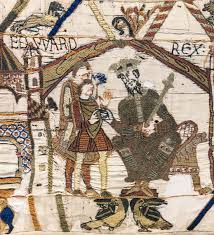The Legacy of Edward the Confessor: England’s Last Anglo-Saxon King

Introduction
Edward the Confessor is a pivotal figure in English history, known as the last Anglo-Saxon king of England before the Norman Conquest. His reign, which lasted from 1042 to 1066, has significant implications for the political and religious landscape of the era. Understanding Edward’s role helps illuminate the transition from Anglo-Saxon to Norman rule, making his story relevant not only to historians but also to those interested in the roots of modern Britain.
Early Life and Ascension to the Throne
Born around 1003, Edward was the son of Æthelred the Unready and Emma of Normandy. His early years were marked by instability, as he spent a significant portion of his childhood in exile due to the Danish conquest of England. In 1042, following the death of Harthacnut, Edward returned to England and ascended to the throne. His accession was welcomed by many who sought stability after years of Danish rule.
Reign and Achievements
Edward’s monarchy is characterised by a focus on religion and a desire to strengthen the English church. He was known for his piety and commitment to Christianity, earning him the title of ‘the Confessor.’ One of his most notable achievements includes the founding of Westminster Abbey, which became a key site for royal ceremonies and a symbol of England’s religious devotion.
During Edward’s reign, England experienced relative peace. The political landscape was, however, complicated by competing interests among the nobility, including powerful figures such as Godwin, Earl of Wessex. Edward’s decisions often reflected his desire to mediate between these factions, a challenging feat that at times drew criticism and caused tensions within the kingdom.
Death and Legacy
Edward the Confessor died on January 5, 1066. His death set off a succession crisis that would ultimately lead to the Norman Conquest later that year, following the Battle of Hastings. Edward died childless, which led to competing claims to the throne by Harold Godwinson and William the Conqueror.
His canonisation as a saint in 1161 further solidified Edward’s legacy; he is often regarded as a unifying figure in English history. Today, Edward is remembered not only for his contributions to the English church but also for his role in shaping the future of England during a time of transition.
Conclusion
Edward the Confessor’s legacy is significant as it marks the end of Anglo-Saxon rule in England and sets the stage for the influx of Norman culture and governance. His reign reflects the complexities of monarchy in medieval England, highlighting themes of piety, power, and the impact of individual leaders on broader historical trajectories. Understanding Edward’s life helps explain the intricate tapestry of England’s past, influencing perspectives on governance and faith that resonate to this day.
You may also like

The Role of Metro Systems in Modern Cities

Costa Coffee’s Commitment to Sustainability in 2023
